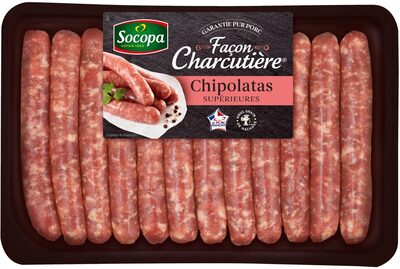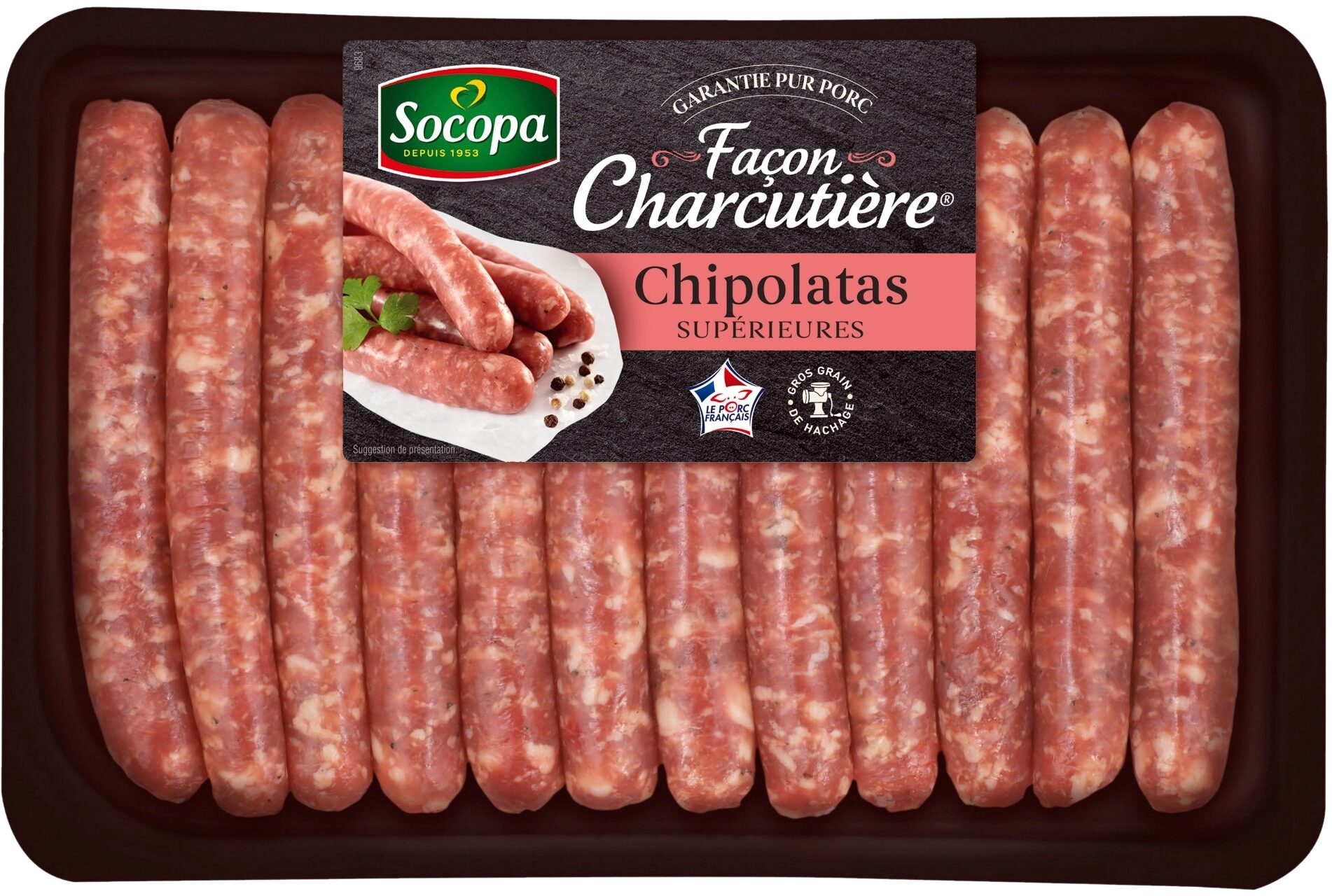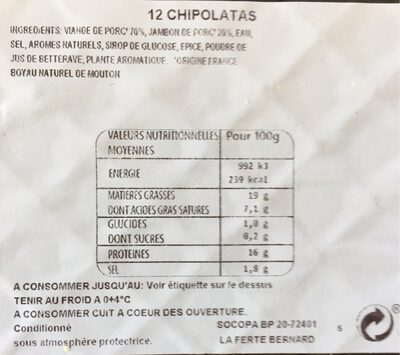12 Chipolatas Supérieures Façon Charcutière - Socopa - 0,660 kg
This product page is not complete. You can help to complete it by editing it and adding more data from the photos we have, or by taking more photos using the app for Android or iPhone/iPad. Thank you!
×
Barcode: 3039050649126 (EAN / EAN-13)
Common name: Chipolatas
Quantity: 0,660 kg
Packaging: Plastic, Fresh, Ps-polystyrene, Seal, Tray, fr:Film plastique
Brands: Socopa
Categories: Meats and their products, Meats, Prepared meats, Fresh foods, Sausages, French sausages, Chipolatas, fr:Charcuteries à cuire
Labels, certifications, awards:
French meat, French pork, Green Dot, Pure pork, Boyau naturel, Eco-Emballages, Gros grain de hachage

Origin of ingredients: France, fr:Viande Porcine
Manufacturing or processing places: Socopa Viandes (Filiale Groupe Bigard) - Lieu dit Les Bordes - D323 - 72400 Cherré, Sarthe, Pays de la Loire, France
Traceability code: FR 72.080.002 CE - Cherré (Sarthe, France)
Link to the product page on the official site of the producer: http://www.socopa.fr/nos-produits/saucis...
Stores: Simply
Countries where sold: France
Matching with your preferences
Environment
Carbon footprint
Packaging
Transportation
Report a problem
Data sources
Product added on by nounours
Last edit of product page on by foodvisor.
Product page also edited by jacob80, kiliweb, manu1400, marketinggms, packbot, roboto-app, yuka.SFBrUVNLQXdqS00ybi8wMCtUaU02UGNseGFXdWIzR3FDdG8xSVE9PQ, yuka.VDRsZUZLSXpwLzBvdFBSdjhrclgvUGxTbnBhS1Zsbm1FTlU0SUE9PQ.










